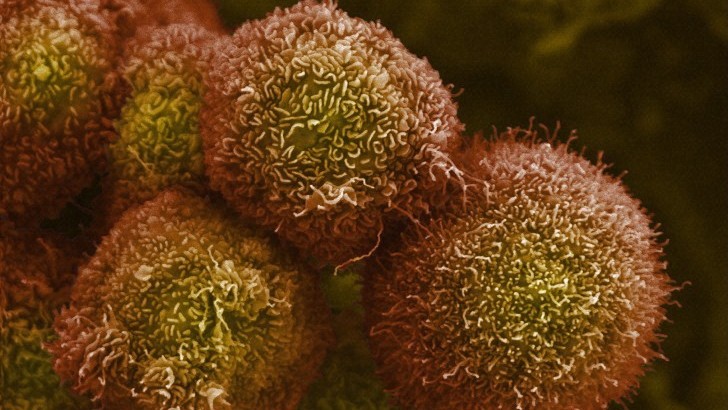Friday, 09 September 2016
A new immunotherapy treatment has shown dramatic results in treating advanced pancreatic cancer, a deadly cancer that has seen little progress in treatment over the last 20 years.
Patients in a trial who received the new treatment, IMM-101 with chemotherapy, showed a significant survival advantage over those receiving chemotherapy alone. Most importantly, the combination resulted in no added toxicity for the recipients, unlike many other cancer treatments.
Immunotherapy treatments help to boost the immune system, enabling it to deal effectively with cancer cells.
Chemotherapy is the only option for advanced pancreatic cancer since any tumours cannot be removed. Gemcitabine is the standard chemotherapy for this type of cancer. It can be combined with other chemotherapy drugs but the resulting toxicity is often high and side-effects can be debilitating for many patients.
In the trial one group of patients received gemcitabine chemotherapy through a drip, as well as a course of IMM-101 injections. The other group received gemcitabine chemotherapy alone.
Some patients given both treatments lived significantly longer (years) than expected, while the overall median survival increased by 59% (2.6 months). This is particularly notable because metastatic pancreatic cancer is one of the deadliest forms of cancer, and life expectancy following diagnosis is very short, with median survival about 6 to 11 months.
The study was led by Professor Angus Dalgleish, Professor of Oncology at St George’s, University of London, working with independent UK-based biopharma Immodulon, owner of IMM-101.
The results have been published in the British Journal of Cancer.
Professor Dalgleish explained: “In my experience of using IMM-101 to treat cancer patients, we see that using IMM-101 ‘wakes up’ the immune system without any added toxicity. In my melanoma patients in particular, patients have shown greatly increased survival rates and enjoy a much better quality of life. In some patients I’ve actually seen the cancer disappearing altogether.”
IMM-101 is a naturally occurring mycobacterium called M. obuense. It works by harnessing the power of the immune system to recognise, respond to and control cancer in a way that is different to conventional immunotherapy treatments. IMM-101 is not currently licensed, but Professor Dalgliesh wants to see it available as soon as possible.
He said: “I have seen first-hand that this is a hugely beneficial treatment for patients and I’d like to see it translated to every hospital in the country. I believe IMM-101 could revolutionise the way this cancer is treated globally.”
Charles Akle, Chairman of Immodulon, said: “The results from this study are remarkable and represent a significant breakthrough in the development of immunotherapy for the treatment of pancreatic cancer. The next phase of testing is imminent, after which, we hope to be able to bring IMM‑101 to market for patients.”
The study was supported by the Institute for Cancer Vaccines and Immunotherapy from the earliest stages. Chair of Trustees, Harry Cotterell OBE, said: “These are exciting results and support our hope that immunotherapy will in future become a generally accepted treatment for a wide range of cancers, improving both survival rates and quality of life.”
The Ralph Bates Pancreatic Cancer Research Fund has also supported the investigation. Virginia Bates from the Fund said; “This is a significant milestone and an exciting development after so many years of dedicated research. We’re so pleased that there is light at the end of the tunnel as it will bring hope to many people who are suffering from pancreatic cancer”.

